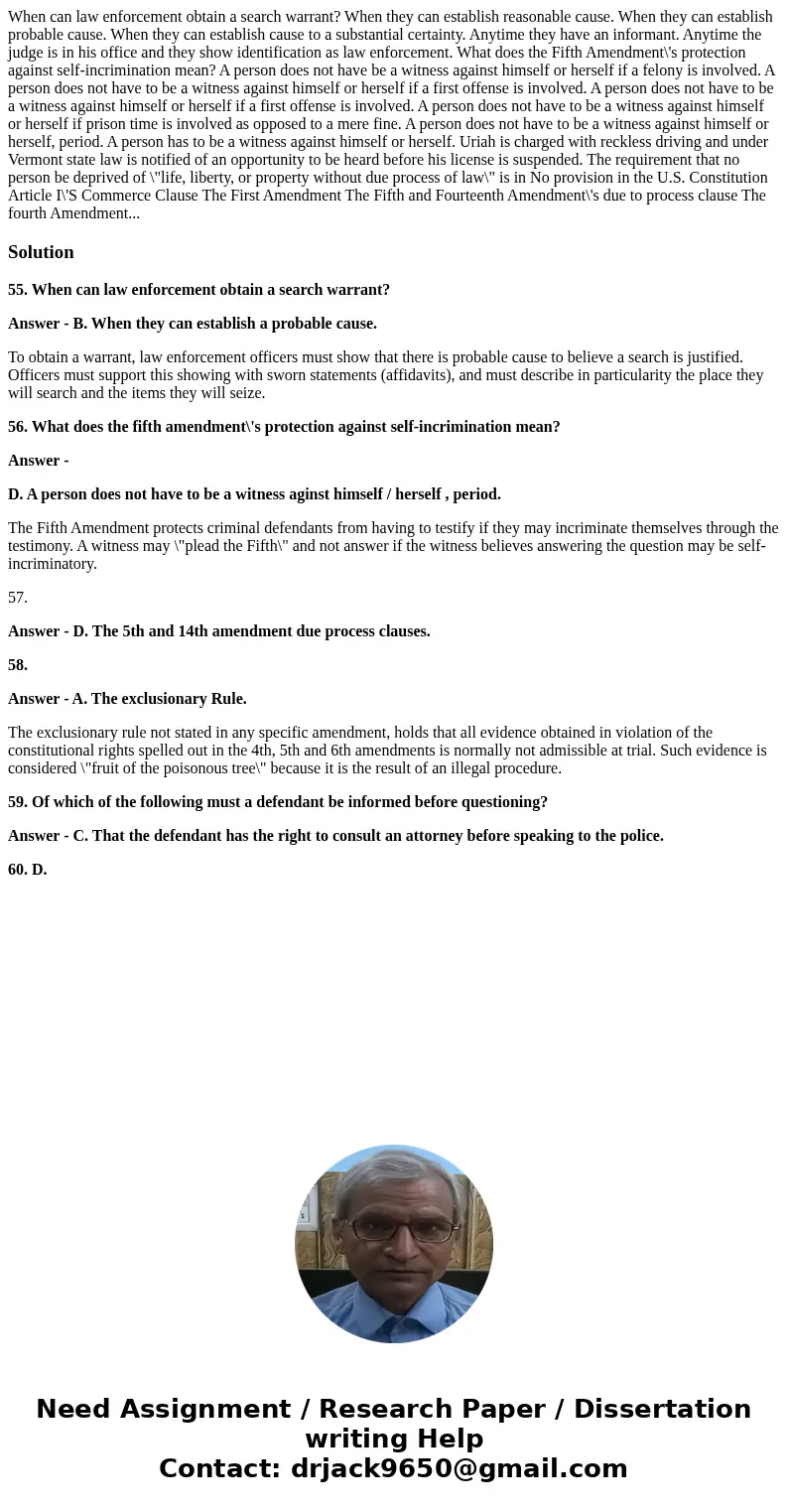When can law enforcement obtain a search warrant When they c
Solution
55. When can law enforcement obtain a search warrant?
Answer - B. When they can establish a probable cause.
To obtain a warrant, law enforcement officers must show that there is probable cause to believe a search is justified. Officers must support this showing with sworn statements (affidavits), and must describe in particularity the place they will search and the items they will seize.
56. What does the fifth amendment\'s protection against self-incrimination mean?
Answer -
D. A person does not have to be a witness aginst himself / herself , period.
The Fifth Amendment protects criminal defendants from having to testify if they may incriminate themselves through the testimony. A witness may \"plead the Fifth\" and not answer if the witness believes answering the question may be self-incriminatory.
57.
Answer - D. The 5th and 14th amendment due process clauses.
58.
Answer - A. The exclusionary Rule.
The exclusionary rule not stated in any specific amendment, holds that all evidence obtained in violation of the constitutional rights spelled out in the 4th, 5th and 6th amendments is normally not admissible at trial. Such evidence is considered \"fruit of the poisonous tree\" because it is the result of an illegal procedure.
59. Of which of the following must a defendant be informed before questioning?
Answer - C. That the defendant has the right to consult an attorney before speaking to the police.
60. D.

 Homework Sourse
Homework Sourse